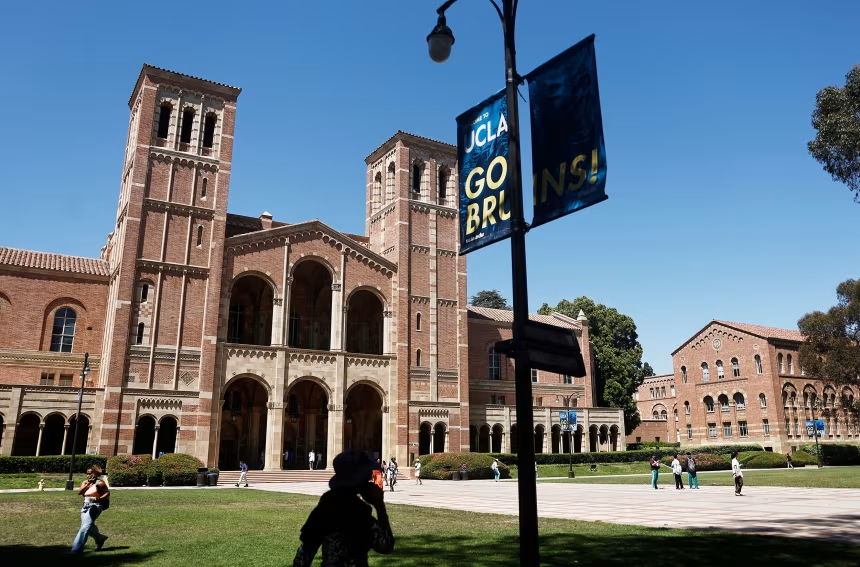When the Trump administration abruptly froze more than half a billion dollars in science grants to UCLA this summer over claims the university tolerated antisemitism on campus, the shockwaves reached far beyond Westwood. Labs went dark, graduate students scrambled to cover stipends, and long-planned research on dementia, rural heart disease, and robotics was suspended.
Now, after a series of legal battles, most of that funding has been restored. In late August, U.S. District Judge Rita Lin issued injunctions ordering the National Science Foundation and the National Institutes of Health to reinstate hundreds of suspended grants. As of September, the NSF had restored nearly 300 awards, and the NIH has reinstated all but nine of its grants to UCLA. The ruling also extended to other agencies, including the Department of Defense and the Department of Transportation, forcing them to release previously frozen research money across the University of California system.
The scale of the disruption was unprecedented. UCLA relies heavily on federal grants to maintain its research enterprise, bringing in billions each year to support faculty, staff, and students. Cutting that pipeline for even a few weeks rippled across scientific disciplines, from biomedical labs to engineering teams.
At the center of the controversy were allegations that UCLA failed to address antisemitism on campus. The administration used those claims as a basis to withhold research dollars, effectively punishing the university by undermining its scientific mission. But more than 600 Jewish faculty, students, staff, and alumni publicly opposed the cuts, arguing they were punitive, counterproductive, and harmful to the very communities they were supposed to protect. UCLA itself convened a task force, reviewed campus climate concerns, and adopted new measures, but insisted that the wholesale suspension of research funding was unjustified.
Judge Lin agreed, finding that the blanket freeze violated both due process and the rights of individual researchers who were not accused of misconduct. Her injunction emphasized that federal agencies cannot unilaterally disrupt established funding streams without proper legal justification.
The case is far from over. The Trump administration has demanded a $1.2 billion settlement from the UC system tied to its allegations, a figure UCLA officials have described as exorbitant and destabilizing. Appeals of Judge Lin’s injunction are also possible. Meanwhile, researchers are cautiously restarting their work, but some warn that lost time and disrupted experiments cannot easily be recovered.
Beyond the immediate legal and financial stakes, the episode underscores the precarious balance between politics and higher education. Federal science funding is supposed to be insulated from partisanship, designed to advance knowledge and innovation in the public interest. But the UCLA case demonstrates how quickly those protections can erode when political grievances are weaponized.

